Essential Guide to Garden Maintenance in Sidcup
Understanding the Climate of Sidcup
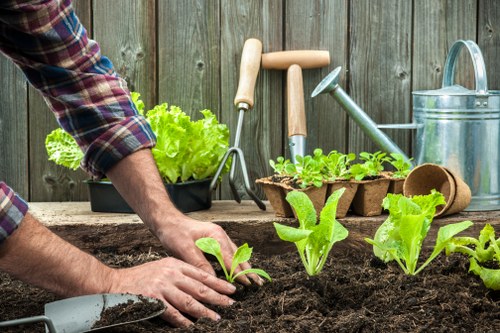
Sidcup, located in the London Borough of Bexley, experiences a temperate maritime climate. This means mild winters and cool summers, with adequate rainfall throughout the year. Understanding the local climate is crucial for effective garden maintenance as it influences the types of plants that will thrive and the maintenance schedules required.
The average annual temperature in Sidcup hovers around 11°C (52°F), with summer temperatures typically ranging between 15°C to 25°C (59°F to 77°F). Winters are relatively mild, rarely dipping below 0°C (32°F). This climate is conducive to a wide variety of plants, making garden planning both exciting and versatile.
Rainfall is well-distributed, with no distinct dry season, ensuring that gardens remain hydrated naturally. However, unexpected heavy rains can lead to soil erosion and plant damage, necessitating proactive garden management practices.
Seasonal Garden Maintenance Tasks
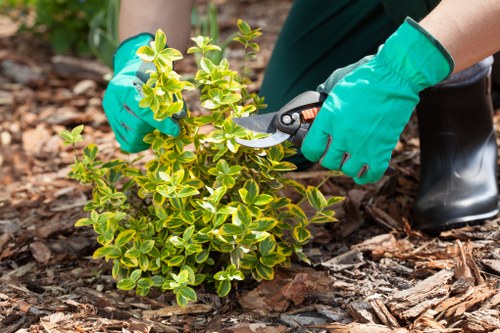
Spring is a critical time for garden maintenance in Sidcup. As the weather warms, it's important to prepare beds for planting by removing any winter debris and enriching the soil with compost or fertilizers.
Pruning is essential to encourage healthy growth. Focus on removing dead or diseased branches and shaping plants to enhance their structure and aesthetics.
Planting new flowers, shrubs, and trees can add vibrancy and diversity to your garden. Early spring is the perfect time to sow seeds for a colorful and resilient garden.
Weed Control and Pest Management
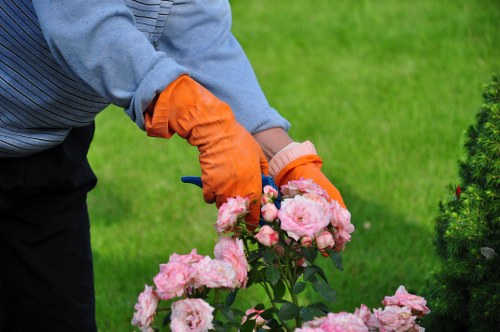
Weeds can quickly overrun a garden, competing with desired plants for nutrients and water. Regular weeding, especially during the growing season, is necessary to maintain a healthy garden.
Implementing natural pest control methods helps in maintaining an eco-friendly garden. Introducing beneficial insects like ladybugs and using organic pesticides can manage pest populations effectively.
Regular monitoring of plants for signs of pests or diseases allows for early intervention, preventing minor issues from escalating into major problems.
Pruning and Trimming Techniques
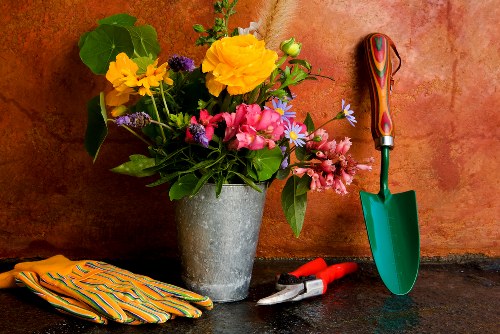
Proper pruning techniques are vital for the health and appearance of plants. Pruning promotes air circulation, reduces the risk of disease, and encourages new growth.
When trimming shrubs and hedges, aim for a balanced shape that complements the overall garden design. Avoid cutting too much at once, which can stress the plants.
For flowering plants, pruning after the blooming season ensures more vibrant blossoms in the following year. Always use sharp, clean tools to make precise cuts.
Soil Health and Fertilization
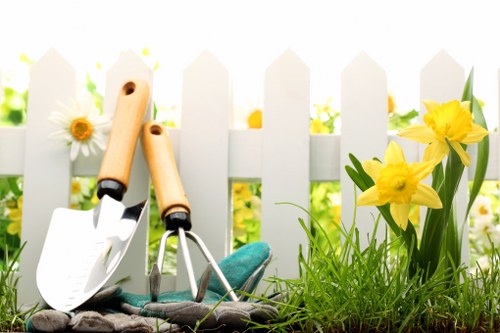
Healthy soil is the foundation of a thriving garden. Regularly testing soil pH and nutrient levels helps in determining the appropriate amendments needed for optimal plant growth.
Incorporating organic matter like compost improves soil structure, enhances moisture retention, and fosters beneficial microbial activity.
Fertilization schedules should be tailored to the specific needs of your plants. Over-fertilizing can lead to nutrient runoff and environmental harm, so it's important to follow recommended guidelines.
Irrigation Systems and Water Management
Efficient irrigation systems are essential for maintaining garden health, especially during dry spells. Drip irrigation and soaker hoses provide targeted watering, reducing water wastage.
Rainwater harvesting systems can be integrated to utilize natural rainfall, promoting sustainable water usage.
Regularly checking and maintaining irrigation equipment ensures that your garden receives consistent and adequate moisture.
Choosing the Right Plants for Sidcup Gardens
Selecting plants that are well-suited to Sidcup's climate conditions enhances garden resilience and beauty. Consider native species that are adapted to local weather patterns and soil types.
Incorporate a mix of perennials and annuals to ensure year-round interest. Perennials provide consistent structure, while annuals offer seasonal color variations.
Consulting with local nurseries or garden centers can provide insights into the best plant choices for your specific garden environment.
Implementing Sustainable Gardening Practices
Sustainable gardening minimizes environmental impact while promoting biodiversity. Techniques such as mulching help retain soil moisture and suppress weed growth naturally.
Encouraging pollinators by planting nectar-rich flowers supports local ecosystems and enhances garden productivity.
Reducing chemical usage in favor of organic alternatives ensures a safe and healthy garden space for both flora and fauna.
Maintaining Garden Tools and Equipment
Proper maintenance of garden tools extends their lifespan and ensures efficient operation. Regular cleaning, sharpening, and storage prevent rust and wear.
Investing in high-quality tools suited to your garden tasks enhances productivity and reduces physical strain.
Organizing tools in a designated storage area keeps your garden tidy and makes equipment easily accessible when needed.
Landscaping Ideas for Sidcup Gardens
Creative landscaping can transform your garden into a beautiful and functional outdoor space. Features like pathways, garden beds, and water elements add visual interest and structure.
Incorporating seating areas provides a place to relax and enjoy the garden environment.
Using a variety of plant heights, textures, and colors creates depth and balance in your garden design.
Professional Garden Maintenance Services in Sidcup
Hiring professional garden maintenance services can alleviate the burden of upkeep, ensuring your garden remains pristine year-round.
Experts can provide tailored maintenance plans that address specific garden needs, from regular mowing to seasonal planting.
Professional services often bring specialized knowledge and equipment, enhancing the overall quality and health of your garden.
DIY Tips for Effective Garden Maintenance
For those who prefer a hands-on approach, implementing DIY maintenance techniques can be both rewarding and cost-effective.
Regularly scheduling tasks such as weeding, pruning, and watering helps in maintaining garden order and health.
Educating yourself on plant care and gardening best practices empowers you to manage your garden successfully.
Common Garden Maintenance Mistakes to Avoid
Overwatering is a common mistake that can lead to root rot and plant diseases. Ensure that watering practices are appropriate for each plant species.
Neglecting soil health can impede plant growth. Regularly amend the soil to maintain fertility and structure.
Improper pruning techniques can damage plants. Always research the correct methods for each type of plant before trimming.
Enhancing Garden Aesthetics
Adding decorative elements such as garden art, lighting, and ornaments enhances the visual appeal of your garden.
Implementing color schemes through plant selection and accessories creates a cohesive and attractive garden space.
Maintaining a tidy garden by regularly removing debris and organizing plantings contributes to overall aesthetics.
Benefits of Regular Garden Maintenance
Consistent garden maintenance promotes plant health, preventing diseases and pest infestations.
A well-maintained garden increases property value and provides a serene outdoor space for relaxation and entertainment.
Engaging in garden maintenance activities can also offer therapeutic benefits, reducing stress and enhancing mental well-being.
Final Thoughts on Garden Maintenance in Sidcup
Effective garden maintenance in Sidcup requires a combination of knowledge, regular upkeep, and the right tools. Whether you choose to undertake maintenance yourself or hire professionals, prioritizing garden care ensures a beautiful and thriving outdoor space.
By understanding the local climate, selecting appropriate plants, and implementing sustainable practices, your Sidcup garden can become a source of pride and enjoyment for years to come.
For personalized guidance and expert garden maintenance services, contact us today and let us help you cultivate the garden of your dreams.